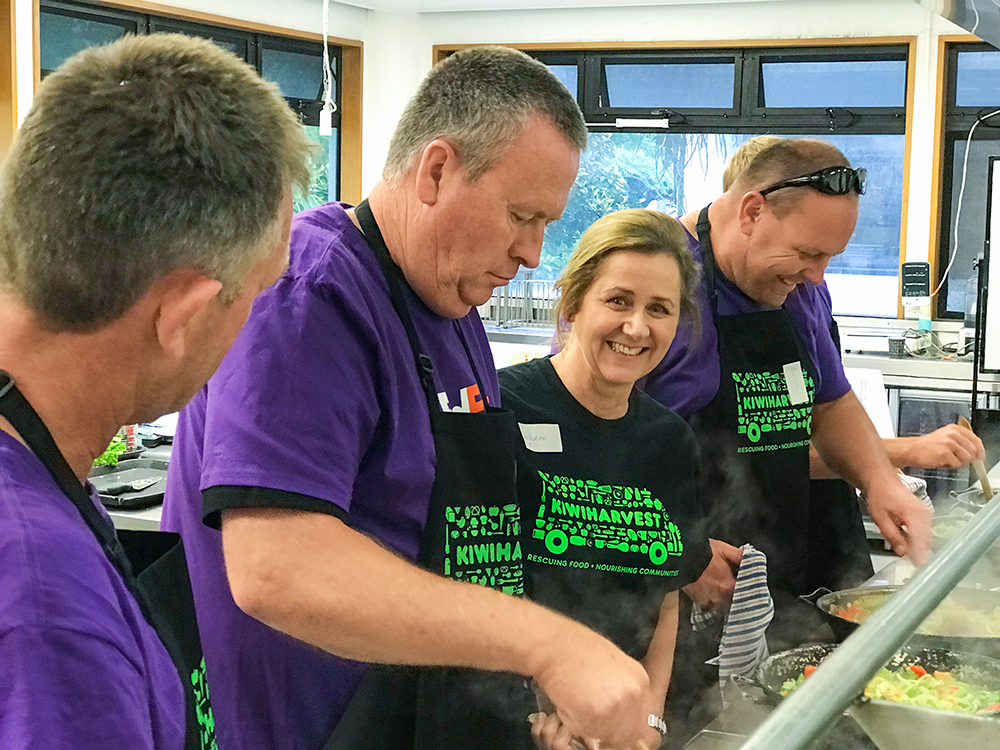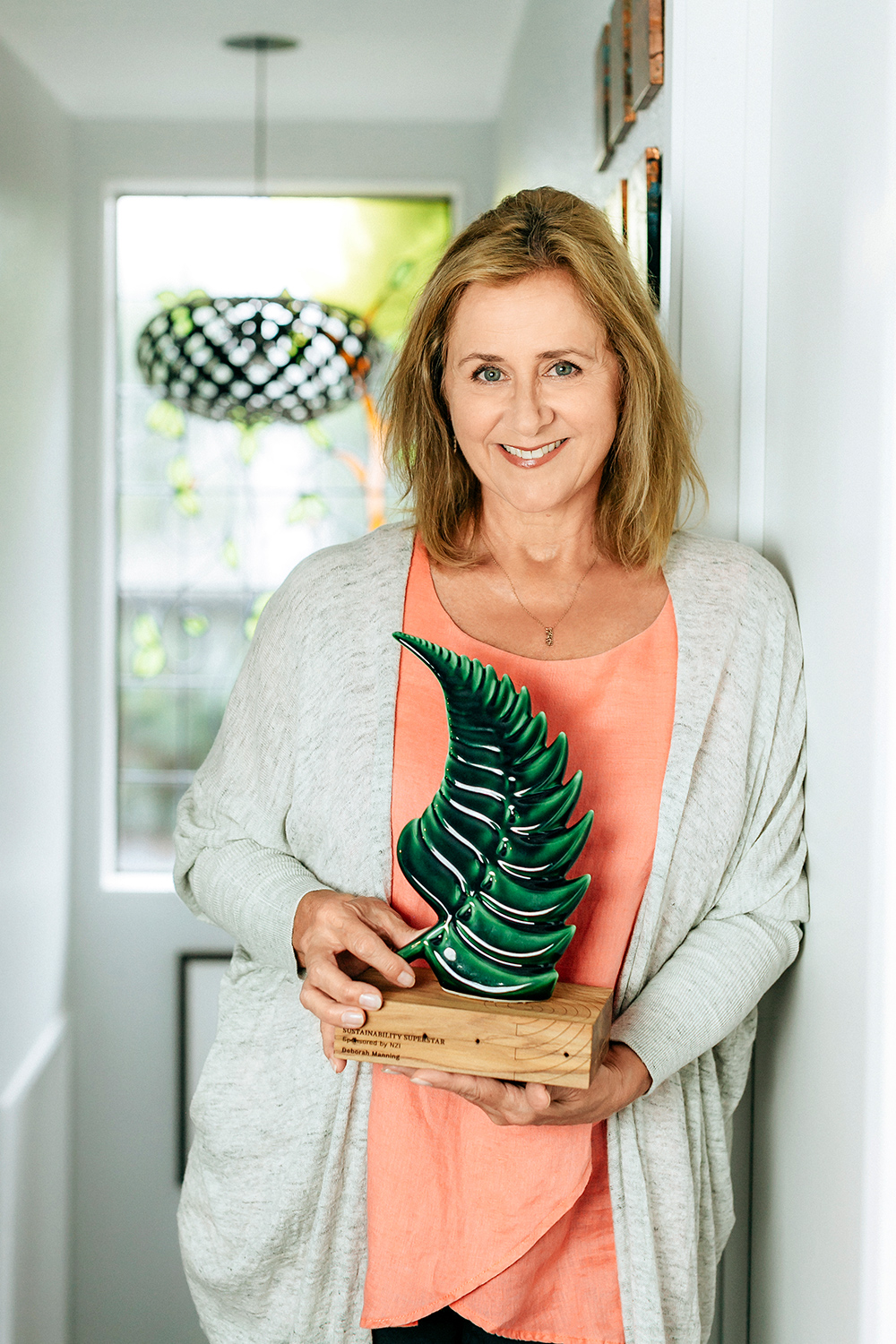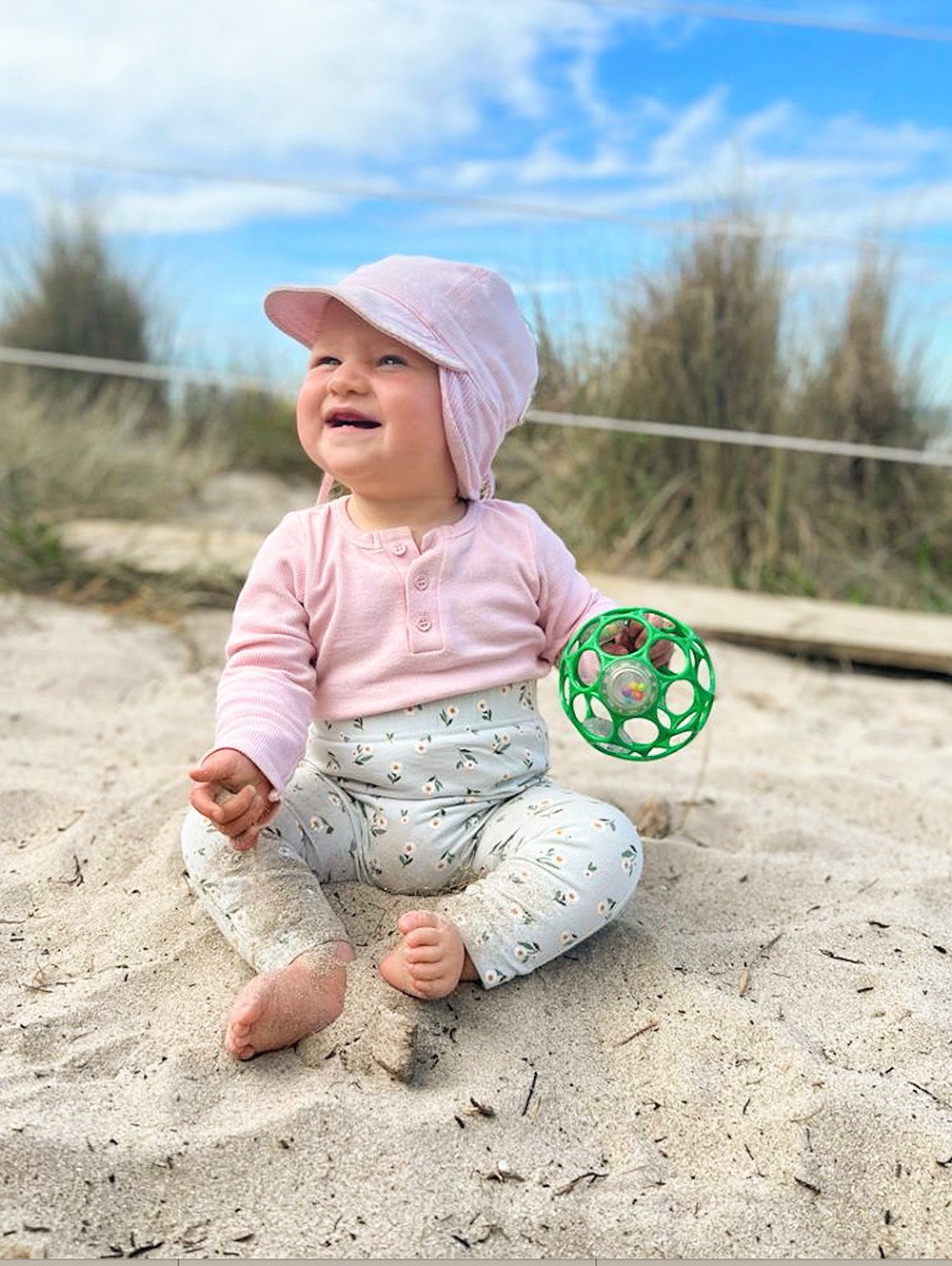As Deborah Manning snuggles into her grandchild, she ponders what the future holds for 14-month-old Millie. What can she do to make her world a better place?
It’s that altruistic view on life that saw the mother of three set up food rescue social enterprises Kiwi Harvest 10 years ago, followed by co-founding the New Zealand Food Network in 2020.
“I was working as a lawyer in Dunedin and got to that point where my children were growing up, and I thought, ‘What sort of legacy am I going to leave for my children and their children? How can I be more involved in creating a better world?'” she explains to the Weekly.
Deborah was reading a newspaper article about a person who was “dumpster diving” for food outside a restaurant, and on the same page there was a story about child poverty and food security.
It set the wheels in motion for an idea that would see hundreds of thousands of tonnes of food being diverted from landfill to go to New Zealanders in need.

As she cooks up some food alongside the sponsors.
“On the first day, I collected seven kilograms of food. I was so proud of myself. Now on our biggest day, we collect 41,000 kilograms. It’s very satisfying.”
It proved so successful, Deborah expanded with warehouses in Auckland and the South Island that collect bulk volumes of food, repackage them and distribute them within 48 hours to communities in need.
“There was no organisation that could receive very large volumes of donated and surplus food. You can’t saturate a local market with 200 pallets of cream cheese.”
Partnering with food producers and government agencies, she has now shared 61 million kilograms of food with 61 communities.
“We don’t call it waste – it’s a meal for somebody,” explains Deborah.
“It’s not lost on me, the effort that’s gone into making the food – the horticulturalists who grow and harvest the food and send it to market, the artisan baker who gets up at 3am to bake; they put their heart into it. Alternatively, it decomposes in landfill and creates methane, a hugely harmful greenhouse gas.”
Deborah recently received a Sustainability Superstar award from the Sustainability Network for “going above and beyond to bring about sustainability change in Aotearoa”.

Award-winner Deborah is full of praise for the contributions of the team around her.
“It means a lot,” she tells. “This started off as a one-person band, but it really has been a team effort, particularly all the food donors. We couldn’t do it without funders or our staff.”
Deborah says around 40 percent of people in New Zealand experience food insecurity, which she explains as not having regular access to nutritious, culturally appropriate, sustainably-sourced food for their everyday basic needs.
This startling statistic motivates her to keep going so that all Kiwis, including her grandchildren, have enough to eat.
Looking at young Millie, Deborah speaks genuinely, “You’re so lucky you were born in New Zealand. You’re going to grow up in a country that is green, and the air is fresh and you can drink the water.”

Deborah’s leaving a legacy for Millie
She muses, “When you have grandchildren, you start to see the generations that will come. You stop looking at life in your bubble and think about what it will look like for them.”
She and her doctor husband of 35 years, Patrick, raised their three children to respect food, with family meals around the table a priority. Their eldest son and daughter are both doctors, who are married to doctors in Tauranga. And their younger son lives alone in Wellington – with Deborah often checking in on what he has in his fridge to eat.
“This next generation makes decisions based on ethical, moral and sustainable beliefs,” she says. “We have to change to make the world a better place.
“In the next 10 years, I’d like to be out of a job. I’d like there to be no demand for people to need food support and no food waste.”



